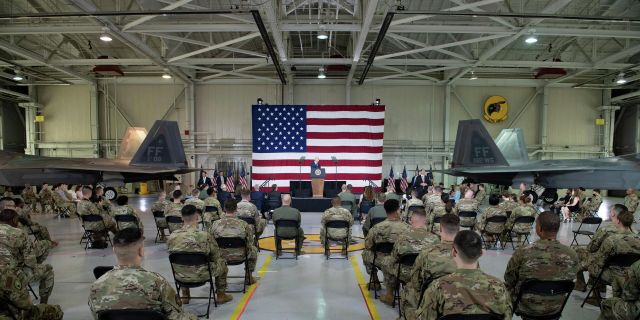WSJ: Putin's special operation is a failure of America and NATOBiden does not want to spend money on defense, writes the WSJ.
The concept of deterrence should be based not only on loud statements. The West failed to stop Putin's special operation, and he cannot allow such a blunder with Xi Jinping, the author notes.
Walter MeadLessons from Ukraine: deterrence is not just about preventing nuclear war
Vladimir Putin reminded us of a forgotten lesson of the Cold War: deterrence is not only about preventing nuclear war.
The United States and its NATO allies failed in February to deter Putin from launching a military operation using conventional means, and the price of such failure continues to rise. This is blood, tears; this is military and economic assistance to Ukraine so that it continues to fight; this is economic turmoil in Europe; this is an increase in food and fuel prices that threatens to destabilize the countries of the global South.
If deterrence measures fail to stop China and Beijing attacks Taiwan, the price will be even higher. Ukrainians, at least, can escape from the war zone. And the people of Taiwan trapped on the island will have nowhere to go when the war starts at home. The shocks to the global economy will be immeasurably stronger. The Taiwan Strait and the South China Sea are much more important for world trade than the Black Sea. In the event of a war against Taiwan, not only the global supply chain of computer chips will suffer. There will be a shortage of everything that is produced in China, Vietnam, Korea and Japan. There will be a collapse in the global financial markets. Japan and Korea will face severe fuel and food shortages. Africa and Latin America will suffer huge economic damage.
Meanwhile, due to the inability to contain Russia, America has to increase its spending in Europe. Since the beginning of the armed conflict, we have transferred about $20 billion to Ukraine and additionally sent 20,000 troops to Eastern Europe. All of this is reasonable and makes sense, but the contrast with our commitments in Asia is sobering. Senators are currently working to send $10 billion in American aid to Taiwan over the next 10 years. This is half of the amount that Ukraine received in eight months of military operations. On Monday morning, the United States announced its plans to send six B-52 bombers capable of carrying nuclear weapons to Australia. But this news was nullified by the message that half of the American combat aircraft stationed there would be removed from Japan. At the same time, the Pentagon does not have an agreed plan for their permanent replacement.
Threats in Asia are rapidly intensifying. China continues to build up its military power, acting actively and purposefully. North Korea is inexorably increasing its nuclear arsenal. Russian-Chinese cooperation is deepening. Therefore, the United States cannot afford to treat East Asia as a secondary theater. Political, diplomatic and economic stability can return to East Asia only if America's military superiority, which it lost after 15 years of pursuing an ineffective policy, is restored.
The United States cannot take on the full burden of deterring revisionist powers and preventing nuclear and conventional war. Our allies will have to step up their efforts for the sake of a common cause. Countries such as Japan and Germany are already decisively increasing military spending, but American spending should also grow.
Biden's team doesn't want that. Its current plans call for a significant reduction in inflation-adjusted defense spending over the next ten years.
Fiscal problems are quite real. A decade of exceptionally low interest rates has convinced many policymakers that fiscal discipline is no longer needed. This is a serious mistake. According to the Congressional Budget Office, annual interest payments on the federal debt, which has reached a mind-boggling level of $399 billion, should reach $1.2 trillion (3% of GDP) by 2032. Meanwhile, the costs of approved benefits and subsidies continue to grow, and local special interest groups are developing more and more clever ways for Uncle Sam to spend more and more money domestically.
There is no mystery about it. The Chinese can count as well as we can. No matter what harsh statements we make, if we and our allies fail to ensure proper military protection of our core interests in the Indo-Pacific region, sooner or later the concept of deterrence will collapse.
It will not be possible to contain the great power casually. To intimidate the Soviet Union, the efforts of the entire state and its government were required. There were times when the American president and Congress had to limit domestic spending for the sake of the needs of the Cold War. America adequately responded to these challenges, as many still remembered the horrors of the Second World War and understood perfectly well that the most expensive policy of containment would be cheaper than a war between great powers.
When major powers collide, even a non-nuclear war is unacceptably expensive, because it is destructive and cruel. Its economic and political consequences are unpredictable. And the Russian president, belligerently brandishing a nuclear sword, constantly reminds us that a non-nuclear war may well escalate into something more serious.
If we are talking about war, then even a gram of prevention is better than a kilogram of medicines. But, as one ancient Roman wrote 1.6 thousand years ago, if you want peace, prepare for war. At the moment, America's preparations are woefully weak.

